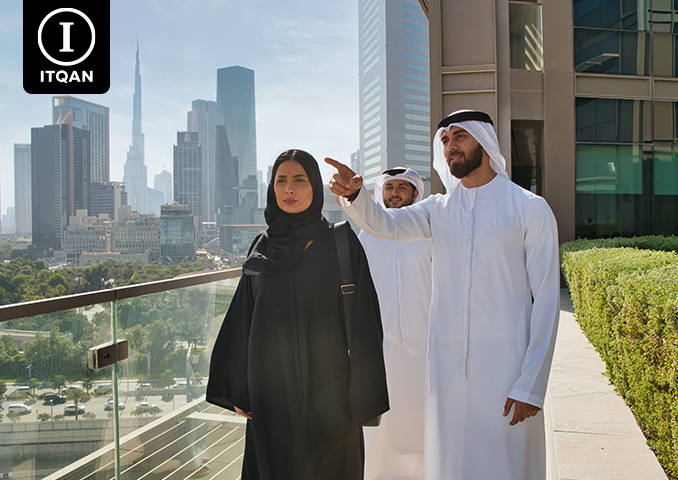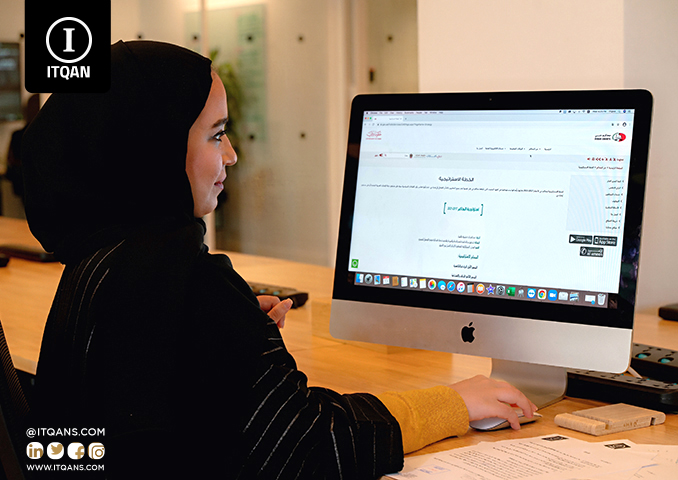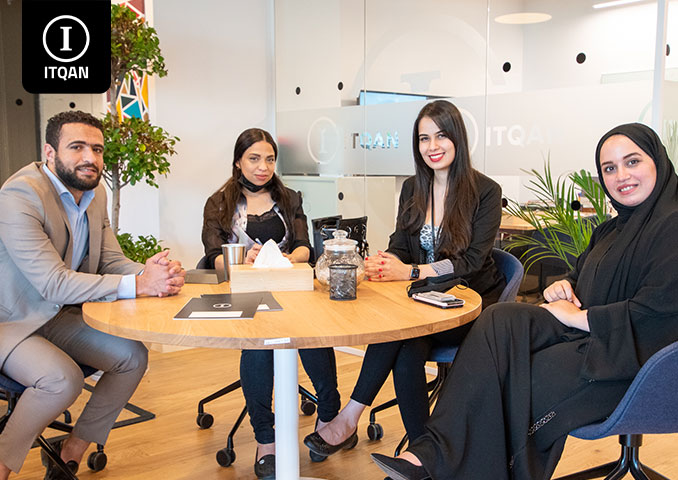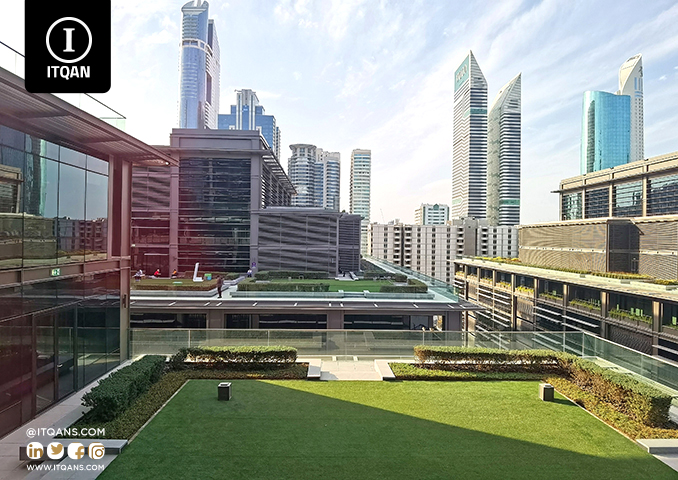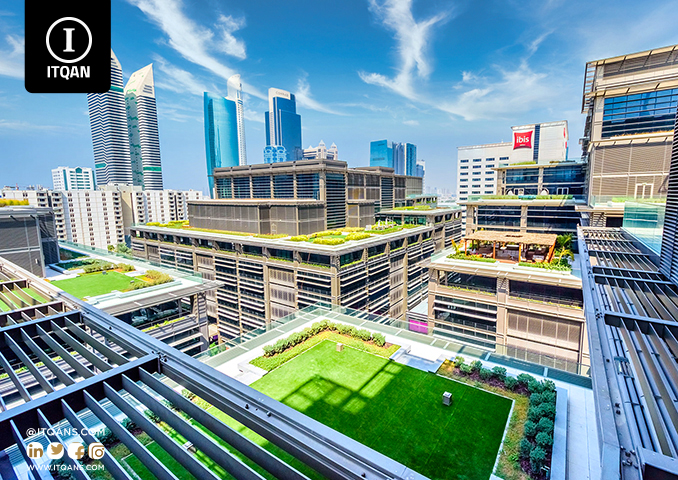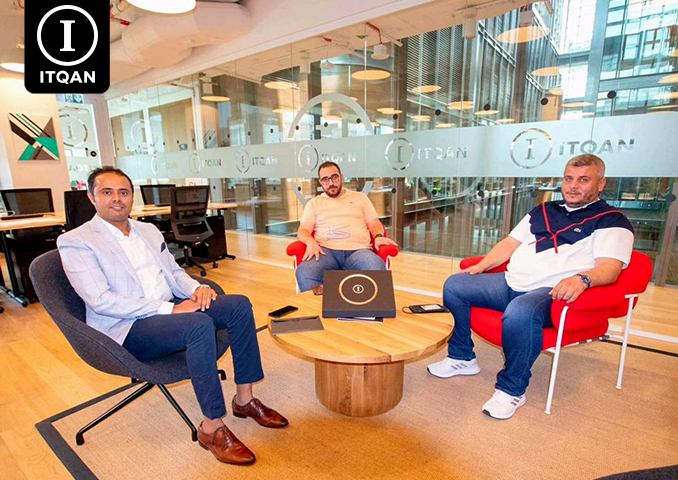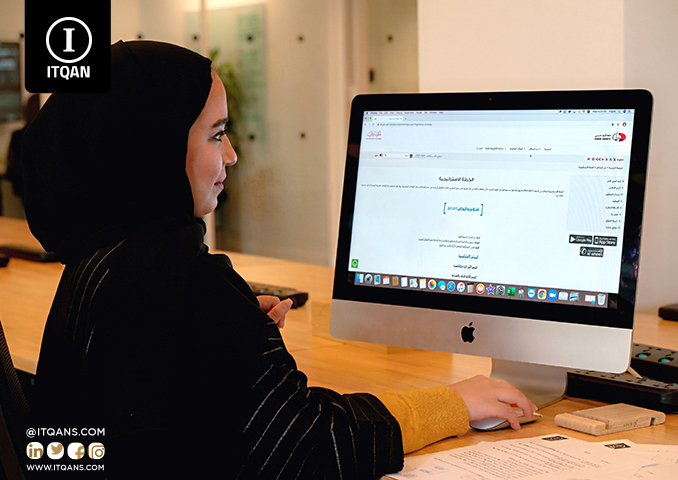Establishing a company in the Dubai International Financial Center (DIFC) Free Zone is a strategic step for businesses wishing to expand their scope and reach new markets. The Dubai International Financial Center is one of the most prominent global financial centers, providing an integrated and supportive business environment for companies of different sizes and sectors. The DIFC was established in 2004 as an independent free zone, providing a cutting-edge legal and regulatory framework in line with global best practice.
The main benefits of establishing a company in a DIFC free zone include the presence of advanced infrastructure that effectively supports business, such as modern offices and integrated logistics services. In addition, the DIFC has a legal system based on English common law, providing legal security and stability to investing companies. This enhances the confidence of investors and business partners in the free zone, and opens doors to multiple financing opportunities through the prestigious banks and financial institutions located within the center.
Furthermore, the free zone features easy and fast establishment procedures, where new companies can benefit from a simplified registration process and flexible business management. The DIFC also offers attractive tax incentives that include tax breaks on income and profits for a specified period of time, enhancing the center’s attractiveness for start-ups and large international companies alike.
Strategically, DIFC’s central location in Dubai is an added advantage, allowing companies to easily access regional and global markets. Thanks to its dynamic and innovative environment, the DIFC has become a preferred destination for companies seeking to enhance their growth and expand their operations.

Establishing a company in the Dubai International Financial Center Free Zone
Establishing a company in the Dubai International Financial Center (DIFC) requires compliance with a number of conditions and requirements. Here are some basic conditions that must be adhered to:
- Legal type of company: The company must be one of the legal types allowed by the DIFC, such as limited liability companies (LLC) or financial companies.
- Geographical location: The company must be headquartered in the DIFC according to the address specified in the official documents.
- Business Names: Company names must be unique and not conflicting with other companies registered with the DIFC.
- Shareholders and Directors: The shareholders and directors representing the company must be identified, and their personal and financial information must be provided.
- Core Capital: The company must determine the required core capital and provide it when establishing the company.
- Required documents: A set of official documents must be submitted, such as the company’s articles of association, articles of incorporation, and certificates of good standing for managers and shareholders.
- Legal Compliance: The company must comply with all local and international laws and regulations relevant to the business.
- Necessary licenses: The necessary licenses must be obtained to conduct company activity in the DIFC, such as a business license and an economic activity license.
The cost of establishing a company in the Dubai International Financial Center Free Zone
The cost of setting up a company in the Dubai International Financial Center (DIFC) Free Zone consists of several factors including registration fees, licenses, legal and advisory services. Here’s an overview of some of the expenses you should be prepared to cover when incorporating a company in a DIFC:
- Registration fees: These fees include the costs of registering the company and obtaining the necessary business licenses. These fees vary depending on the type of company (sole proprietorship, joint stock company, limited liability company, etc.).
- Legal and consulting services fees: Many entrepreneurs need to employ the services of a lawyer or legal consultant to assist them in the process of establishing the company and ensuring its compliance with local laws and regulations.
- Logistics fees: This includes rental costs for the office, costs for additional administrative services such as communications and security, and any other services that could be necessary for the operation of the company.
- Capital Charges: In some cases, the company may have to provide the necessary capital as per DIFC requirements, and this can be part of the initial costs of incorporation.
Types of companies that can be established in a DIFC
Here is a table summarizing the types of companies that can be established in the Dubai International Financial Center (DIFC):
| Legal type of company | the description |
|---|---|
| Limited Liability Company (LLC) | A type of company in which the owners have limited liability and is common in small and medium-sized businesses. |
| Branch of a foreign company | A branch represents a foreign company in the DIFC and can have commercial or non-commercial activity. |
| A company limited by guarantee | A type of company whose members have limited liability but additional limited financial liability is assumed in accordance with the guarantee agreement. |
| Private Company | A company whose shares are owned by a limited number of shareholders and is usually based on one family or a limited group of individuals or institutions. |
| Public Company | A company issues shares to the public via the stock exchange or other ways, and anyone can buy shares and contribute to the company’s capital. |
| Investment Company | A company established to invest in financial assets such as stocks, bonds, and real estate, and often manages investors’ money and transfers it to various assets. |
| Financial Company | A company that provides financial services such as banks, insurance companies, investment companies, and other financial services. |
| Technology Company | A company working in the field of technology and providing technical solutions, software and digital services. |
| Consulting Company | A company that provides consulting services in various fields such as business, financial, engineering, marketing, and others. |
These are some of the common types of companies that can be established in the DIFC. The requirements and conditions for establishing each type of company vary depending on the legal type and activities associated with it.
Establishing a company in the free zone
Establishing a company in the free zone is considered an important strategic step for businessmen and companies wishing to exploit commercial and investment opportunities in an effective and innovative way. Free zones provide an ideal environment for business thanks to many tax and logistical advantages and flexible legislation that attract both national and international companies.
When establishing a company in a free zone, an entrepreneur must follow precise legal and administrative procedures. This includes choosing the appropriate legal type of company, identifying shareholders and directors, and submitting the required documents to the relevant authorities in the free zone.
Free zones are characterized by providing a supportive business environment suitable for innovation and growth, where companies can benefit from advanced infrastructure and easy access to local and global markets. In addition, free zones provide learning and development opportunities by exchanging knowledge and experiences with other companies located in the region.
In short, establishing a company in a free zone represents an exciting opportunity for companies to succeed and thrive in a dynamic and innovative business environment.

Establishing a company in the free zone
Important documents for establishing a company in the free zone
Establishing a company in the free zone requires submitting a set of important documents to ensure compliance with local laws and regulations. Here is a list of basic documents that are usually required:
- Memorandum of Association: A document that specifies the main objectives and activities of the company, as well as the distribution of capital and the names of shareholders.
- Articles of Association: It specifies the company’s bylaws, including the rights and duties of shareholders and company management.
- Application Form: A document containing comprehensive information about the company such as the company name, type of activity, shareholders, and managers.
- Good Standing Certificates: These prove the safety and reputation of shareholders and managers, and may be requested by the relevant authorities.
- Power of Attorney form: If there is a person authorized to represent the company in legal proceedings.
- Capital Transfer Certificates: proving the transfer of capital to the company’s account in the free zone.
- Passport copies: for all shareholders and directors.
- Lease Agreements: If the company will own an office or space in the free zone.
- Bank Reference Letter: proving the financial ability of shareholders to finance the company.
- Economic Evaluation Report: It can be requested in some cases to estimate the value of the company.
- Activity Licenses: You need a license for the company’s main activity in the free zone.
- Employee Visas: If you plan to employ employees, you may need the appropriate visas.
Advantages of establishing a company in the free zone
Establishing a company in the DIFC Free Zone provides a number of advantages and benefits, including:
- Flexible regulatory environment: The DIFC Free Zone provides a flexible regulatory environment characterized by easy procedures and moderate legislation, which facilitates the process of establishing and operating a company.
- Tax advantages: Companies in DIFC enjoy no taxes on personal income and profits, and do not have to pay taxes on capital or profits for up to 50 years, which increases profitability and investment attractiveness.
- Strategic Location: DIFC is strategically located linking the eastern and western markets, making it an ideal hub for global business and providing great opportunities for global expansion.
- Advanced infrastructure: DIFC has an advanced infrastructure that includes modern office space, advanced information technology, and distinguished financial and banking services, which facilitates the process of operating companies with high efficiency.
- Administrative and Legal Support: DIFC provides specialized administrative and legal support to companies, including legal advisory services and assistance with incorporation and operating procedures.
- International networking and networking opportunities: DIFC gives companies the opportunity to engage in a wide network of business and professional relationships through international events and conferences held regularly in the region.
In short, establishing a company in the DIFC Free Zone provides an ideal environment for companies to achieve success and economic growth, by providing tax advantages, advanced infrastructure, administrative and legal support, and international networking opportunities.
In conclusion, establishing a company in the Dubai International Financial Center (DIFC) Free Zone is a strategic move with multiple benefits for companies seeking to expand into global markets. The DIFC provides a flexible, world-class regulatory environment, with advanced infrastructure and a legal system based on English common law, enhancing the region’s attractiveness to investors and entrepreneurs from around the world.
The DIFC Free Zone offers multiple tax benefits, including no personal income tax and profit taxes, which enhances profitability and attracts more investments. Dubai’s strategic location, linking the eastern and western markets, makes it an ideal hub for global business, allowing companies to take advantage of business opportunities available in neighboring markets.
Companies established in the DIFC have access to a wide range of financial and banking services, as well as specialized administrative and legal support, facilitating the process of establishing a company in the free zone and operating a business. DIFC also provides an integrated work environment characterized by the availability of modern office space and advanced technological infrastructure, ensuring a comfortable and effective work environment for companies and their employees.
In addition, the DIFC gives companies the opportunity to engage in a wide network of business and professional relationships, through international events and conferences held regularly at the centre, enhancing opportunities for cooperation and strategic partnerships.
The most important frequently asked questions about establishing a company in the free zone
What are the basic steps to establish a company in DIFC?
Choose the company type, specify the company name, submit the license application, provide the required documents, and receive the license.
Can companies in DIFC trade locally within the UAE?
Yes, companies can transact locally and internationally within the UAE.
How much does it cost to start a company in DIFC?
Costs range depending on the type of company and services required, and include licensing fees, rent, and administrative services.
Can ownership of a company be transferred in a DIFC?
Yes, company ownership can be transferred under certain conditions and legal procedures are met.
What guarantees are provided to investors in DIFC?
The DIFC provides a safe and regulated investment environment, with guarantees of legal protection for investors and companies.






